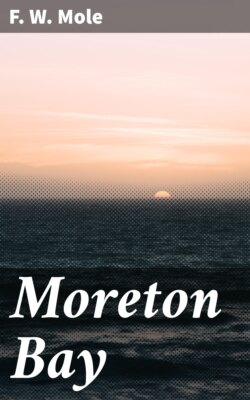Читать книгу Moreton Bay - F. W. Mole - Страница 3
На сайте Литреса книга снята с продажи.
CHAPTER I.
ОглавлениеTable of Contents
Away back from the deep red sea walls of Devon, out beyond Countisbury to the north, lay the trim farm of Pentecost, a copyhold of Grassmere Manor, the seat of Earl Belriven. It had descended according to the ordinary rules of succession, as a matter of course, but not of law, to the Worthingtons, a succession dating back to the Conquest. The course of descent was usually to the eldest son and his issue; or, if he had no issue, then to the next son and his issue; falling these, to the daughters and their issue. In the event of the tenant having no issue, or of his issue falling, his estate escheated to his lord.
The present tenant of Pentecost was Stephen Worthington, who by his wife Anne had issue one son and three daughters, all under the age of 21 years. John the son, the eldest of the three, was a replica of his father—strong, sturdy, and self-willed, typical of the yeomanry of England. The daughters, Mary, Grace, and Ellen, in order of their age, were fair daughters of Devon, a county noted for its fair women, and Mary the eldest of the three, was the most beautiful. She was 18 years of age and the senior of her sisters by two years and three years respectively.
Pentecost, haloed by tradition, was one of the happiest homes in Devon. There peace and plenty, family love and inherent pride reigned supreme; but recently a cloud, at first almost imperceptible, appeared low down on the horizon of its happiness and contentment. There were no stabs of angry lightning, no soughing of desolate winds to be seen or heard as yet but in the faint dark arc of portentousness that crept slowly upward over the heavens of Pentecost there were in it potential storms of devastating terror.
Though Worthington's tenure of Pentecost depended upon custom it was so recorded from time to time in the Manor roll; and though copyhold tenure is fast dying out, there are still to be found scattered here and there up and down the country of England tenant farmers, whose name is that of the hamlet where they and their forefathers have lived. These are the remnants of that yeomanry of England which lived under the beneficent autocracy of an agricultural aristocracy bred and trained in the act of promoting good relationship.
As, therefore, Stephen Worthington held his tenure of Pentecost according to the custom of the Manor, Earl Belriven of Grassmere was entitled on the death of a tenant to claim some personal chattel belonging to the deceased. This custom dated back to Feudal ages, when the accoutrements of war of a deceased villain were delivered over to the lord. Latterly, however, the best horse or the best bull or some other asset of value was claimed as a heriot by the lord out of the estate of a deceased tenant.
Stephen Worthington, besides being a prosperous farmer, was a famous horse breeder, and some of the colts bred at Pentecost had won classic races on the English turf; consequently his yearlings were much sought after. In this business of horse breeding he was ably assisted by his daughter Mary. She knew the stud book better than he and there was no keener judge of a colt or filly in England. Horses were part of her life and though but 18 years of age, she was a fearless and daring rider. It was said of her that she could ride the wind if she could only saddle it.
When a blood mare had dropped a foal to a Derby winner and died shortly after it was Mary Worthington, then but 14 years of age, who reared the colt and trained him to her bidding. Though many splendid offers were made for him Mary begged her father not to sell the colt, as he was her pet. Moreover, it would break her heart to part with him. Had she not reared him from a foal, and was he not now the finest horse on Pentecost, if not in all England? This Stephen Worthington acknowledged; and to settle the matter he gave his daughter the colt—a coal-black beauty which she named Lucifer because of his winning ways with her and of his intractableness with stranger's (to whom he was the very devil), to do with as she pleased. Mary Worthington, mounted on Lucifer, was a picture of grace and symmetrical perfection. Her tight-fitting riding jacket of navy blue cloth, moulded to her superb bust and small waist, a looped hat of black beaver pinned carelessly on her red-gold hair, and her upright seat in the saddle as she swayed gracefully with the cantering movements of the horse, made men turn to look at her and vow her to be the most desirable girl in Devon.
It was meet that the colt should be named Lucifer. His love for his mistress seemed as if he were enamoured of her beauty. He would obey her call and appeared to divine her purpose. Even as a dog follows his master, so Lucifer followed his mistress, and like a faithful hound he would guard her against enemies if she had any. This was evidenced by the vicious manner in which he regarded all strangers who approached her. But her control over him was so great that he obeyed her slightest command to behave when he showed signs of dangerous animosity.
Mary coveted the colt not only for the fashionable blood in his pedigree, but for his handsome appearance and staying powers. Her title to the colt as a gift from her father, consummated by delivery, might have held good against the world had he lived, but in the event of his death many strange and unlooked for events might happen.
